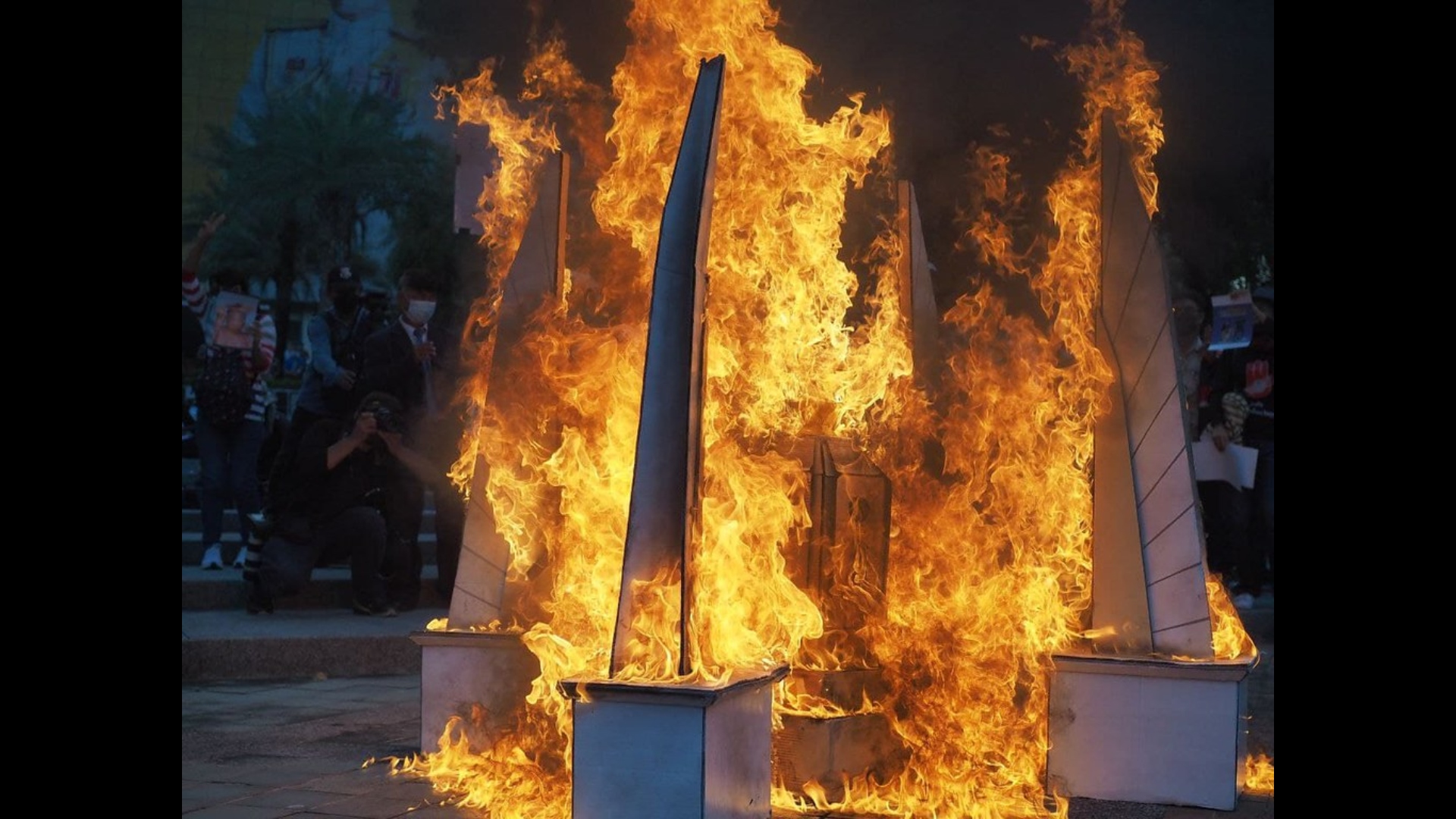In a sweeping order, Thailand’s Constitutional Court ruled that pro-democracy protests and calls for monarchy reforms are an attempt to overthrow the monarchy. The order, passed on Wednesday, November 10, was made during the trial of three youth activists charged with treason.
The three activists — Anon Nampa, Panupong “Mike” Jadnok and Panusaya “Rung” Sithijirawattanakul — are facing treason charges over a call for reforms in the monarchy and the government that were made during a demonstration at Thammasat University in Bangkok on August 10, 2020.
The demonstration was among the first public displays of opposition against the stringent lèse-majesté law — Section 112 of the Criminal Code — during nationwide protests against Thailand’s monarchy. Section 112 can attract anywhere between three to 15 years in jail, the highest sentence in the world. Since the outbreak of the protest, more than 150 individuals have been charged under the law.
The court ruled that statements and speeches made by the three activists, and other symbolic actions during and after the event, had “hidden intentions” of overthrowing the monarchy and the government. “Any actions that seek to undermine or weaken the institution (of monarchy) show intention to overthrow the monarchy,” the judgment read.
Among the statements used to implicate the activists includes a charter of demands released by youth activists in Thammasat University. The charter, apart from asking for the abolition of Section 112, included demands for more transparency in the royal family’s multi-billion dollar assets and wealth, the transfer of royal barracks under the direct command of the King to a civilian government, and the resignation of Prayut Chan-o-cha as prime minister.
The court also ordered the three activists and “other organizations and networks” to stop activities to overthrow the regime. With no clarity on the organizations and networks, activists expect the ruling to become a potent tool for the military-backed government of Prayut Chan-o-cha in cracking down on the pro-democracy protests and demands for reforms in the monarchy.
The three activists were charged based on a complaint filed by Natthaporn Toprayoon, a former advisor to the Ombudsman and vocal supporter of prime minister Prayut Chan-o-cha. Natthaporn has been involved in a previous petition against the erstwhile opposition group Future Forward Party, accusing them of sedition.
Even though the Constitutional Court acquitted the Future Forward Party in January last year, it forcibly dissolved it on charges relating to campaign funding weeks later. The Constitutional Court has had a long history of taking a strongly pro-military position, having dissolved political parties and even democratically-elected governments.
The original petition against the three activists included five other youth movement leaders who had organized the demonstration in Thammasat. But earlier this year, the court decided to hear the case with only the three as named respondents since they are the only ones who can be credited with any public statements about the monarchy.
Anon Nampa and Panupong Jadnok have been in pre-trial detention for over three months on multiple charges, including sedition. According to Prachatai, the Thai Lawyers for Human Rights representing the three activists stated that the court did not hear any testimony from the defendants. Neither did it hear from the expert witnesses suggested by them.
The hearing proceeded without examining the defendants and the court essentially made its decision on the original complaint and the evidence attached while initiating an inquiry on its own. During the hearing on November 10, Nampa and Jadnok chose to wait outside the courtroom, with only Panasuya present from among the defendants.
“For the Constitutional Court to rule in this way is tantamount to their admitting that this country is governed by an absolute monarchy, not a democracy as is written in the constitution,” read a statement by Thalufah, one of the groups advocating monarchy reforms.
During an interview with The Standard, Piyabutr Saengkanokkul, secretary-general of the Progressive Movement, also pointed that the judgment preemptively criminalized further escalation of the protests and is set to affect cross-sections of people calling for reforms.
“If you don’t want to enter the red zone, then don’t do it (call for monarchy reforms),” said Piyabutr. “Don’t speak. Don’t touch. Don’t do anything. Then, you will be in the safe zone. Your party won’t be disbanded. Your MPs can stay. Criminal charges won’t touch you. In public rallies, you mustn’t speak about this. Just talk about ousting Prayut. Don’t speak about these (monarchy) issues and you will be safe.”





